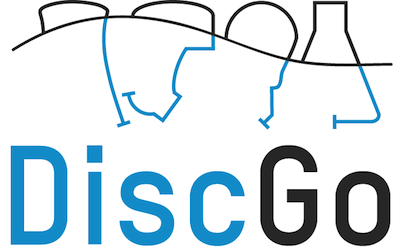Governance of Discontinuation of Sociotechnical Systems
The Department of Science, Technology, and Policy Studies (STePS) is pleased to announce a new international research project on the ‘Governance of Discontinuation of Sociotechnical Systems’ (short: DiscGo). Project leaders in Twente are Prof Stefan Kuhlmann and Dr Peter Stegmaier.
It is a grant from the second round of the Open Research Area Scheme (ORA) by four European national research funding agencies, the Agence Nationale de la Recherche (ANR), Deutsche Forschungsgemeinschaft (DFG), Economic and Social Research Council (ESRC), and the Nederlandse Organisatie voor Wetenschappelijk Onderzoek (NWO), which provides €9 million to fund ten collaborative research projects over the next three years, among which the DiscGo project is one.
This project aims at a better understanding of the governance of the abandonment of socio-technical systems. It asks what discontinuation means as a problem of action for policy-makers. So far, the governance of socio-technical systems has preferentially been associated with advancement and innovation. Discontinuation of socio-technical systems is, at most, discussed as regime change, innovation setback or failure—as if advancement and innovation was the only direction in which socio-technical development and governance would go.
The DiscGo research consortium consists of research groups at the University of Sussex, Brighton (United Kingdom), the TU Dortmund University (Germany), the Unité Science en Société (SenS) at the Institut Francilien Recherche Innovation Société, IFRIS, Paris (France) and the University of Twente, Enschede (The Netherlands). The UT based group is coordinating the consortium.
For present purposes, the focus will be on the four particular cases of
(1) commitments to phase out nuclear power from its current major role in the energy sectors of several countries worldwide, with others ceasing earlier-planned nuclear expansion; discontinuation efforts have been accelerating since the Fukushima Daiichi nuclear disaster, Spring 2011;
(2) a major trend in automotive drive engineering to replace fossil fuel combustion technology by (battery) electric engine technology, a trend that has been speeding up since the global economic recession in the late 2000s;
(3) the synthetic pesticide DDT which was banned for agricultural use worldwide under the Stockholm Convention in 2004;
(4) the phase-out of the incandescent light bulb technology through the EU regulation 244/2009, based on the Eco-Design of Energy-Using Products Directive 2009/125/EC, started in the EU in 2009.
Each case exemplifies in different ways the policy pace, political will and institutional momentum required in order to transform wider governance environments so as to achieve such large-scale shifts in socio-technical infrastructure. This project will reconstruct the links between the main types of discontinuing transition pathways, actors and interactions in the four case studies. They will reveal key connections between discontinuation, innovation, and active policies politically organising and shaping socio-technical change.
For further information, please contact:
